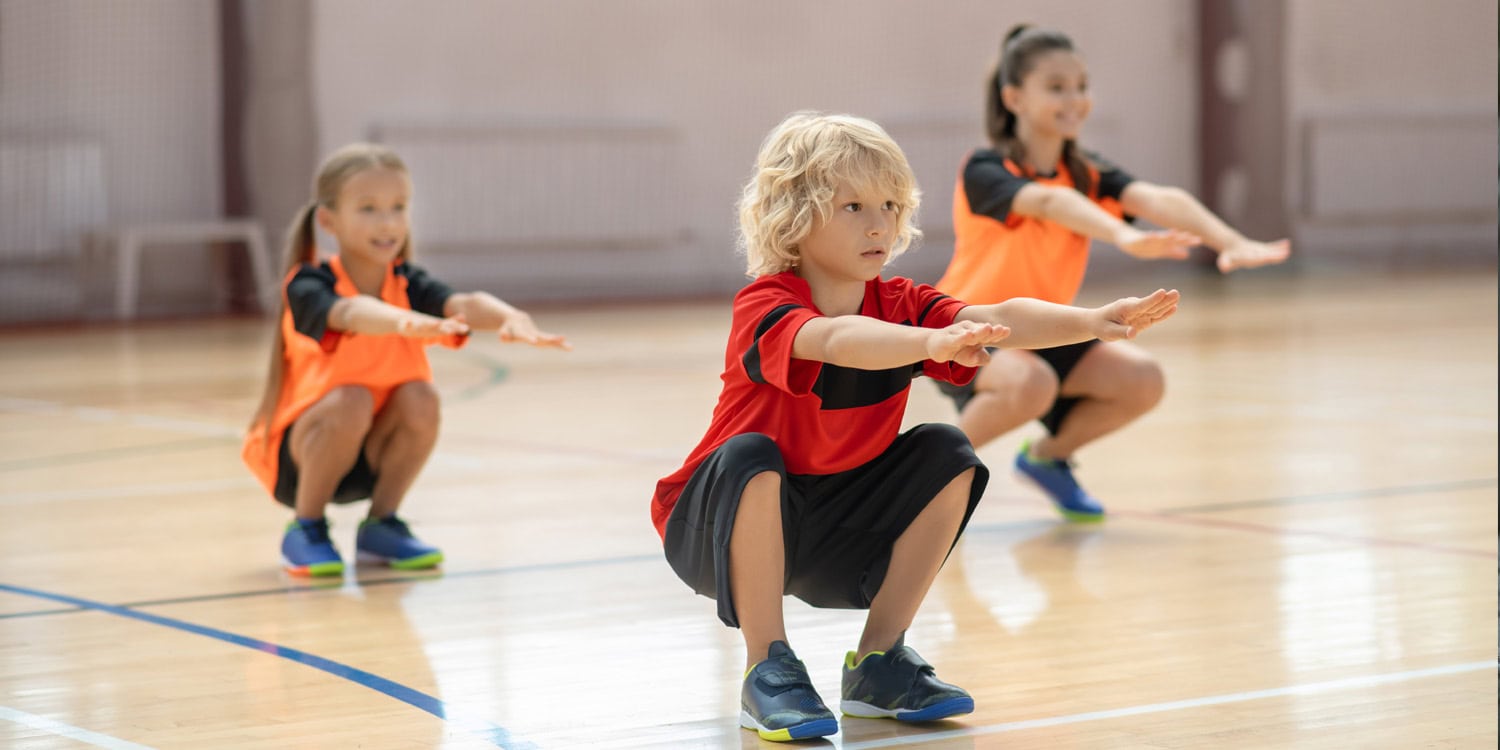Exercise is often celebrated for its role in keeping children physically fit, but what if it could also boost brainpower? A recent meta-analysis published in Pediatrics has demonstrated that structured physical activity programs improve intelligence in young people. The study found a 4-point average increase in IQ scores among participants, highlighting the critical role of exercise in shaping both mind and body during childhood and adolescence.
Previous research has shown that exercise benefits cognitive functions such as memory, attention, and executive functioning. However, the specific relationship between exercise and general intelligence, including IQ, remains underexplored. Past studies have provided limited and sometimes conflicting evidence, often focusing on fluid intelligence or academic performance rather than general intelligence as a whole. This gap in understanding prompted researchers to conduct a comprehensive investigation into whether exercise interventions could influence intelligence more broadly.
Another motivating factor behind the study was the growing recognition of the importance of early interventions for cognitive development. Childhood and adolescence are pivotal periods for brain plasticity, during which experiences can have long-lasting effects on cognitive and neural growth. By identifying whether exercise has a direct impact on intelligence, the researchers aimed to provide insights that could inform educational policies and encourage the incorporation of physical activity into school curriculums.
“Our interest in this topic stems from the growing body of evidence, including previous work by Francisco B. Ortega, Kirk I. Erickson, and Óscar Martínez-de-Quel—co-authors of this study—on the link between physical activity and cognitive development in youth. By exploring the potential of exercise as a tool to enhance intelligence, we aimed to shed light on a practical and accessible strategy to support children’s development,” explained corresponding author Javier S. Morales, a Ramón y Cajal Postdoctoral Researcher at the University of Almería and co-director of Fissac.
The researchers used a meta-analysis, a research method that combines and statistically analyzes the results of multiple studies to draw broader conclusions. In this case, the researchers aggregated data from 14 randomized controlled trials involving 3,203 participants. Meta-analyses are particularly useful for synthesizing findings from individual studies that may vary in sample size or methodology, providing a more comprehensive understanding of the topic. By pooling results, the researchers assessed the overall impact of exercise interventions on intelligence while accounting for variations across the included studies.
The researchers focused on general intelligence, often measured by IQ, as well as two key subdomains: fluid intelligence and crystallized intelligence. Fluid intelligence refers to the ability to solve novel problems and think logically without relying on prior knowledge or experience. It is closely linked to problem-solving, adaptability, and reasoning skills, making it essential for tackling unfamiliar challenges.
In contrast, crystallized intelligence represents the accumulation of knowledge, skills, and experience over time, often reflected in vocabulary, factual knowledge, and other learned abilities. While fluid intelligence tends to peak in early adulthood, crystallized intelligence continues to improve with age as individuals acquire and refine their knowledge.
The findings revealed a significant positive impact of exercise interventions on intelligence. This effect was observed across various subgroups, including children with normal and low baseline IQ levels, and was consistent regardless of intervention duration. Additionally, the researchers found significant benefits for fluid intelligence. While evidence for improvements in crystallized intelligence was limited, one study did report gains in this domain for children with obesity.
“The key takeaway is that regular exercise not only benefits physical health but also contributes to cognitive development, specifically improvements in intelligence (including both general and fluid intelligence),” Morales told PsyPost. “In concrete terms, exercise programs improve the intelligence quotient of children and adolescents by an average of 4 points—a result comparable to the gains typically achieved through an additional year of education. This means that encouraging children and adolescents to participate in structured physical activities can have lasting positive effects on their intellectual capabilities, as well as other areas of their lives, such as happiness, socioeconomic success, and even future health.”
Importantly, the effects were not influenced by participant age or the duration of the exercise intervention, suggesting that the cognitive benefits of physical activity are broadly applicable across different developmental stages.
“One surprising finding was the consistency of the benefits across different age groups, levels of baseline intelligence, and durations of interventions,” Morales said. “It was particularly noteworthy that children with lower baseline intelligence also experienced significant improvements, indicating that exercise can serve as an inclusive and effective intervention for diverse populations.”
Despite its strengths, the study has some caveats to consider. One significant challenge was the heterogeneity of the exercise programs analyzed. The interventions varied in type, intensity, duration, and frequency, making it difficult to identify specific characteristics that optimize cognitive benefits. For instance, while moderate-to-vigorous activity seemed beneficial, too few studies reported exercise intensity to draw firm conclusions.
“A key limitation is the variability in the types and intensities of exercise programs studied, which makes it difficult to pinpoint the most effective intervention,” Morales noted. “Additionally, while the benefits are clear, more research is needed to understand the underlying mechanisms and to explore long-term outcomes beyond the duration of the interventions.”
To better understand the relationship between exercise and intelligence, future studies could aim to standardize intervention protocols and include more detailed reporting of exercise characteristics.
“Our long-term goals include identifying the optimal characteristics of exercise programs—such as type, duration, frequency, and intensity—for enhancing intelligence and other cognitive domains,” Morales explained. “We also aim to explore how these findings can be translated into practical recommendations for schools and communities to integrate exercise as a core component of children’s education and development.”
“Our findings highlight the importance of making exercise a priority for children and adolescents, not only for physical health but also for cognitive and emotional development. We hope this research inspires policymakers, educators, and parents to create environments that encourage active lifestyles from an early age.”
The study, “Exercise Interventions and Intelligence in Children and Adolescents: A Meta-Analysis,” was authored by Javier S. Morales, Pedro L. Valenzuela, Óscar Martínez-de-Quel, Juan Luis Sánchez-Sánchez, Adrià Muntaner-Mas, Kirk I. Erickson, Ana Carbonell-Baeza, Francisco B. Ortega, and David Jiménez-Pavón.





